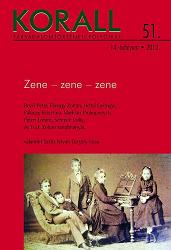A „nevelő szórakoztatás” válsága 1954-ben
The Crisis of ‘Educational Entertainment’ in 1954
Author(s): Gyöngyi HeltaiSubject(s): History
Published by: KORALL Társadalomtörténeti Egyesület
Summary/Abstract: This study explores the failure of attempts to transform ‘consumer attitudes’ towards the musical theatre both by the Establishment and ambitions of the intelligentsia. Before 1945, the Budapest theatre scene was mostly in private hands and the most important genres were typical popular culture productions, such as operetta and musical comedy. In addition, they also constituted an integral part of the cosmopolitan theatre industry of the time. Following the nationalization of theatres in 1949, throughout a succession of different socio-cultural periods, the new centralized cultural policy applied various strategies to uproot these long-standing traditions, ranging from elimination and substitution to appropriation and adoption. The ideologically and aesthetically motivated ambition to transform consumer attitudes affected all levels of the performance model. In spite of these efforts, the musical theatre traditions, including the choice of plays and acting style harkening back to the age of the Austro-Hungarian Monarchy and the inter-war years, almost immediately re-emerged when Imre Nagy’s reform politics gained ground after 1953. The study first outlines how the artists and the audience adapted to the new aesthetics and theatre practice imported from the USSR between 1950 and 1953. Following this, it charts the looming crisis of the theory and practice of educational entertainment through the example of two Budapest musical theatres, Fővárosi Operettszínház and Fővárosi Víg Színház. The growing demand for ‘bourgeois culture-junk’, to use a contemporary expression, was often portrayed as a threat in public and official discourse in 1954. The study explores the crisis management methods, which were employed to address this threat on ministerial and party levels (Hungarian Workers’ Party). The paper also examines financial restrictions, such as measures of ‚rationalization’, restructuring the Budapest theatre scene, and cutting the number of theatre staff employed by the state; and explains how these measures were used to restore the monopoly of socialist realist musical theatre. The paper also provides a statistical comparison of audience reception figures of the new re-politicized musical theatre performances and traditional ‘bourgeois culture-junk’. Based on a wide range of archival documents, libretti and the close analysis of contemporary public discourse, the study suggests that the changing tactics of managing the crisis of ‚educational entertainment’ also reflects the story of political struggle within the communist party elite.
Journal: Korall - Társadalomtörténeti folyóirat
- Issue Year: 2013
- Issue No: 51
- Page Range: 131-160
- Page Count: 30
- Language: Hungarian

